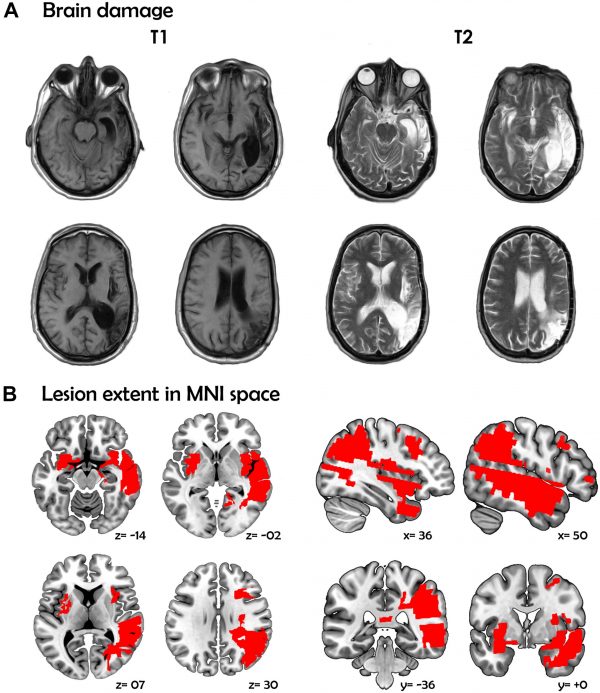Abstract:
Above and beyond the critical contributions of perisylvian regions to language, the neural networks supporting pragmatic aspects of verbal communication in native and non-native languages (L1s and L2, respectively) have often been ascribed to the right hemisphere (RH). However, several reports have shown that left-hemisphere activity associated with pragmatic domains (e.g., prosody, indirect speech, figurative language) is comparable to or even greater than that observed in the RH, challenging the proposed putative role of the latter for relevant domains. Against this background, we report on an adult bilingual patient showing preservation of pragmatic verbal skills in both languages (L1: Spanish, L2: English) despite extended bilateral damage mainly focused on the RH. After two strokes, the patient sustained lesions in several regions previously implicated in pragmatic functions (vast portions of the right fronto-insulo-temporal cortices, the bilateral amygdalae and insular cortices, and the left putamen). Yet, comparison of linguistic and pragmatic skills with matched controls revealed spared performance on multiple relevant tasks in both her L1 and L2. Despite mild difficulties in some aspects of L2 prosody, she showed no deficits in comprehending metaphors and idioms, or understanding indirect speech acts in either language. Basic verbal skills were also preserved in both languages, including verbal auditory discrimination, repetition of words and pseudo-words, cognate processing, grammaticality judgments, equivalent recognition, and word and sentence translation. Taken together, the evidence shows that multiple functions of verbal communication can be widely spared despite extensive damage to the RH, and that claims for a putative relation between pragmatics and the RH may have been overemphasized in the monolingual and bilingual literature. We further discuss the case against the backdrop of previous reports of pragmatic and linguistic deficits following brain lesions and its relation to cognitive compensation in bilingual patients.


